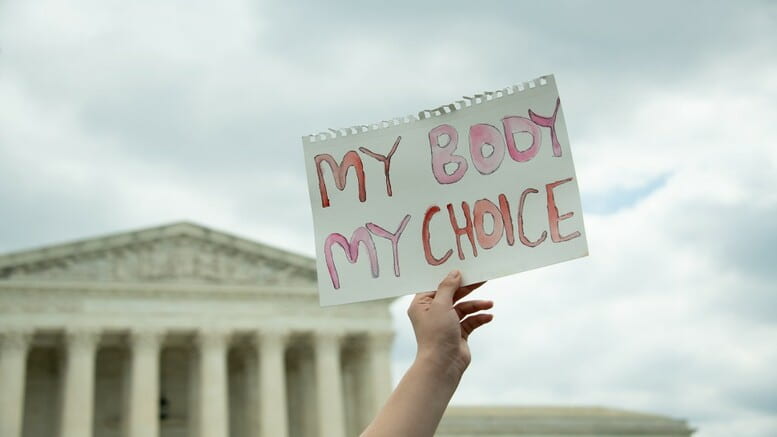National poll surveys citizens on recent Supreme Court ruling
July 20, 2022

A consortium of researchers from Northwestern, Northeastern, Harvard and Rutgers universities recently conducted a survey of 24,414 individuals to find out if recent state policies aligned with the views of their citizens. The national poll, published by the COVID State Project, was a direct response to the Supreme Court’s overturning of Roe v. Wade, a decision that would restrict access to life-saving abortion care in certain states.
“The public’s opinions on abortion are certainly nuanced — their opposition to no access under any circumstance is very clear, but they also support restrictions based on viability,” said James Druckman, political scientist at Northwestern and one of the consortium researchers. “This makes it a complicated issue with limited mobilizational capacity for the Democrats. The bulk of Democrats live in states that have laws consistent with their preferences and it is unlikely Republicans in states with highly restrictive laws would shift their voting patterns due to the issue.”
Key findings from the report:
- Around one in two Americans support abortion if the fetus is at risk for serious health problems or birth defects, compared to around two out of five Americans who oppose it.
- States with populations most opposed to this stance tend to be in the South — where in many, it is not legal to get an abortion for fetal abnormalities — while majorities in some Northeastern states support abortion under these circumstances.
- Nationally, women overall, Hispanic women, young women, liberals and Democrats are most likely to rate abortion as an “extremely important” issue.
- Nearly half of Democrats (48%) versus over one-third of Republicans (36%) rate abortion as “extremely important.” Similarly, 53% of those who self-identify as liberals rate abortion as “extremely important” compared to 39% of self-identified conservatives.
- Regionally, respondents who live in the Northeast consistently voice the highest support for abortions across all scenarios, followed by those on the West Coast and in parts of the upper Midwest. Those living in the South tend to be least supportive, followed by respondents who live in Great Plains and Northern Mountain states. These regional percentages also, to a modest extent, align with how restrictive abortion policies are in each region. For example, lower public support for abortion tracks with more restrictive state policies.
Learn more in Northwestern Now’s article, “Do state abortion policies represent citizen views?”
Faculty

Joel Mokyr wins Nobel Prize in Economic Sciences
October 13, 2025
Nobel recognizes Mokyr’s theory on sustained economic growth Joel Mokyr, the Robert H. Strotz Professor of Arts and Sciences and professor of economics and history in the Weinberg College of Arts and Sciences at Northwestern University, today (Oct….

Northwestern accelerates quantum research with NVIDIA technology
September 19, 2025
NVIDIA code could help researchers tackle computationally demanding tasks hindering quantum research Northwestern University physicists are using NVIDIA technology to tackle the computationally demanding tasks hindering quantum research. Northwestern theoretical physicist Jens Koch and his research group…

Weinberg College welcomes new faculty members for 2025-2026 academic year
September 18, 2025
Shreeya Behera Assistant Professor of Instruction PhD institution: The Ohio State University Previous title and institution: Data Scientist at Pandora Bio, Inc. Home department: Statistics and Data Science Shreeya Behera is a mathematician and data…

Weinberg College faculty and graduate students recognized for excellence in teaching
July 2, 2025
Each year, the Weinberg College of Arts and Sciences and the Office of the Provost recognizes members of the College’s tenure-line and teaching-track faculty for excellence in teaching. Weinberg College in addition recognizes the contributions…



